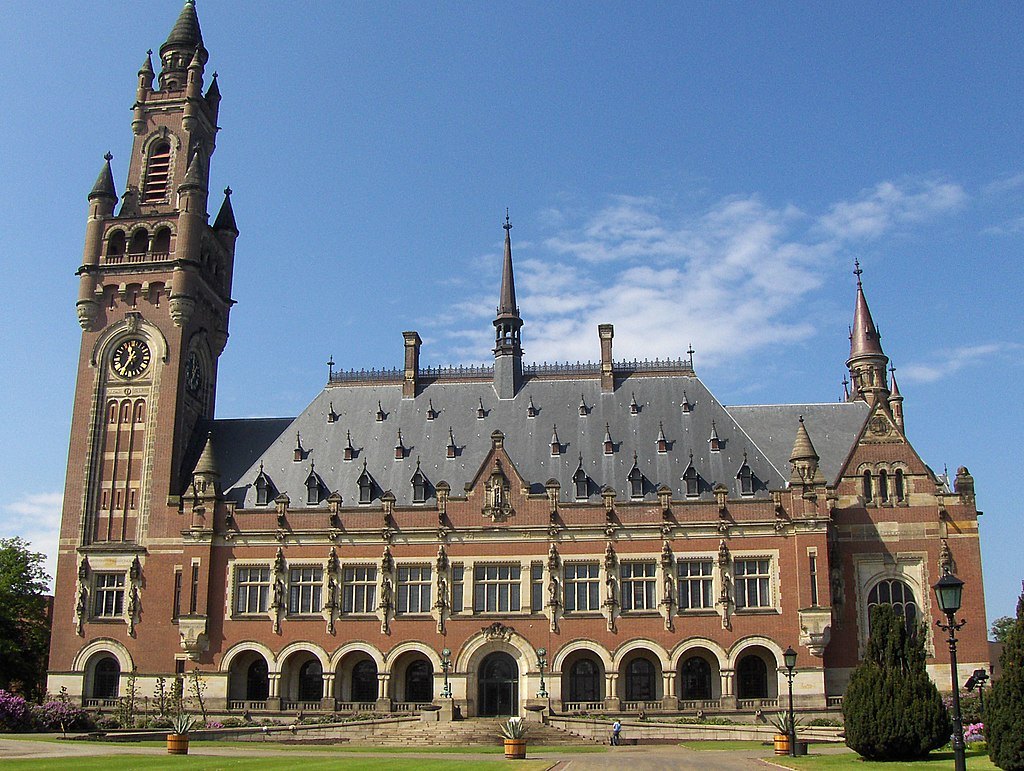United Nations Security Council Resolution 2270
On March 2, 2016, the United Nations Security Council (UNSC) unanimously passed Resolution 2270, which expands the scope of existing sanctions against the Democratic People’s Republic of Korea (DPRK). The resolution was proposed in response to the DPRK’s purported January 2016 hydrogen bomb test.
Published by The Lawfare Institute
in Cooperation With

On March 2, 2016, the United Nations Security Council (UNSC) unanimously passed Resolution 2270, which expands the scope of existing sanctions against the Democratic People’s Republic of Korea (DPRK). The resolution was proposed in response to the DPRK’s purported January 2016 hydrogen bomb test. Even though some experts were skeptical that a traditional, two-stage hydrogen bomb had been detonated, the UNSC moved forward with drafting another round of sanctions against the DPRK. This is North Korea’s fourth nuclear test over the past decade. Since the sanctions passed, Kim Jong Un reportedly has ordered that the DPRK’s nuclear weapons be readied for a potential preemptive strike.
United States Ambassador to the United Nations Samantha Power stated that the resolution “goes further than any sanctions regime in two decades.” It remains to be seen whether member state compliance with the resolution will match the text’s scope. The resolution is noteworthy not only because of its breadth, but also because it reportedly was the product of a close partnership between the United States and the People’s Republic of China (PRC). This cooperation is important in part because the PRC is the DPRK’s largest trading partner and because of longstanding disagreements between the two over the DPRK.
An overview of the resolution is provided below, with an emphasis on the paragraphs imposing obligations on UN member states.
Preamble
The resolution contains a brief preamble citing concern over the DPRK’s January 2016 nuclear test, conducted in violation of prior UNSC resolutions and constituting a threat to the Treaty on Non-Proliferation of Nuclear Weapons and international peace and security generally. Even though the operative language of the resolution does not refer to human rights abuses within the DPRK, the preamble makes vague references to the “importance that the DPRK respond to other security and humanitarian concerns of the international community,” the “hardship that the DPRK people are subjected to,” and the “unmet needs” of DPRK citizens.
Operative Language
Weapons
Under paragraph 6 of resolution 2270, all weapons imports and exports to and from Pyongyang are prohibited. Previously, paragraph 8(a) of resolution 1718 required UN member states to prevent the direct or indirect supply, sale, or transfer to the DPRK of battle tanks, armored vehicles, combat aircrafts, attack helicopters, warships, large artillery systems, missiles or missile systems, certain luxury goods, and “items, materials, equipment, goods and technology determined by the [UNSC] or the Committee” which could contribute to the DPRK’s nuclear, ballistic missile, and weapons of mass destruction-related programs. Now, UN member states must prevent “all arms and related materiel, including small arms and light weapons and their related materiel” from being transferred to the DPRK, along with financial transactions, technical training, advice, services, and assistance related to the provision, use, manufacture, or maintenance of such arms and related materials. UN Security Council Resolution 2270, Paragraph 6 (2016). Additionally, 2270 (Annex IV) expands the category of “luxury goods” to include luxury watches, aquatic recreational vehicles (i.e., personal watercrafts), snowmobiles valued over $2,000, items of lead crystal, and recreational sports equipment.
2270, in language from paragraph 8, also bans transferring to North Korea “any item” except food or medicine that “could directly contribute to the development of the DPRK’s operational capabilities of its armed forces.” Combined with paragraph 6, 2270 aims to implement a complete ban on all weapons-related transfers to and from the DPRK, whether to enrich its nuclear program or to enhance its conventional armed forces.
Cargo Searches
2270 requires states to inspect all cargo within or transiting through its territory if originating from or directed to the DPRK. Searches are expressly authorized, and required, at “airports, seaports and freed trade zones.” Importantly, a reasonable suspicion is not expressly necessary before initiating cargo searches. This paragraph of the resolution does not state this explicitly, but the paragraph’s silence coupled with express references to a reasonableness requirement with respect to at least one other brand of inspection suggests the UNSC intended to require member states to conduct searches without regard to having a reasonable basis on which to conduct it. If there is cargo within or transiting through a state’s territory, it must be inspected. The inspection provision also applies to cargo shipments that have been brokered or facilitated by the DPRK.
The resolution also requires member states to forbid any aircraft from overflying, taking off, or landing in its territory if the state has reasonable grounds to believe that the aircraft has items prohibited by the set of UNSC Resolutions passed regarding the DPRK. There is an exception for when such acts occur in order to facilitate an inspection as described above. The restriction also applies to vessels in seaports if they are owned or controlled, directly or indirectly, by a designated individual or entity.
Asset Seizure and Travel Bans
Additionally, the resolution adds 28 named persons and entities to have their assets frozen and/or to impose a travel ban against them. This builds on paragraph 8(d) of resolution 1718.
Sanctions Evasion
2270 requires member states to expel, in a manner consistent with national and international law, DPRK agents within their territory if a state determines that the agent is working on behalf or at the direction of a designated individual or entity in order to assist in evading sanctions. The same action shall be taken when a member state determines that a non-DPRK foreign national or agent is working to assist a named entity avoid sanctions.
Education and Training
The resolution seeks to prevent member states from offering specialized teaching or training of DPRK nationals in areas which could contribute to the growth of the DPRK’s nuclear proliferation activities. This provision prevents DPRK nationals from studying advanced physics, nuclear engineering, geospatial navigation, advanced computer simulation and related computer sciences, as well as any other relevant discipline.
Other
2270 calls on member states to prohibit their nationals from leasing or chartering their flagged vessels or aircrafts and from registering vessels in the DPRK. The resolution requires member states to prevent the purchase of coal, iron, iron ore from the DPRK if used to generate revenue for the DPRK’s nuclear or ballistic missile programs. With respect to gold, titanium ore, vanadium ore, and rare earth minerals, member states are required to prevent the procurement of the items from the DPRK regardless of how the revenue might be used. Even though gaps remain—the DPRK can use proceeds from coal and iron sales for other purposes—this and the rare earth minerals restriction are significant given minerals and metallurgical products are major export commodities of the DPRK. The DPRK’s sale and transfer of aviation gasoline is supposed to be limited under 2270 by a member state procurement prohibition, except when supplied for civilian passenger aircrafts outside the DPRK “exclusively for consumption during its flight to the DPRK and its return flight.” 2270 also tasks member states with prohibiting the opening and operation of new branches, subsidiaries, and representative offices of DPRK banks (with a reciprocal restriction on national banks from opening branches in the DPRK), preventing the establishment of joint ventures with DPRK banks (unless otherwise approved), working to close existing representative offices within their territory, and banning public and private financial support from reaching the DPRK if such aid could support the DPRK’s nuclear or ballistic missile programs and any other activity prohibited by the UN sanctions regime imposed against the DPRK.
The resolution concludes with language that reaffirms the UNSC’s commitment to a diplomatic solution to the issue and for the resumption of Six-Party Talks with the goal of denuclearizing the Korean Peninsula entirely. The UNSC affirms that it will continuously review the DPRK’s actions and modify the measures described in the resolution in light of the facts presented.





